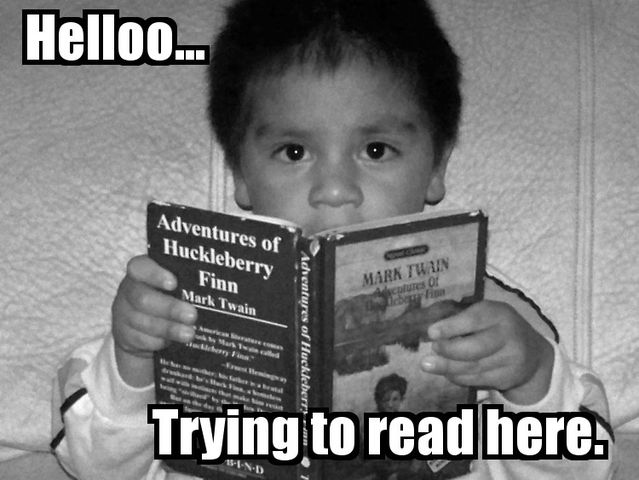Relationships
We Need to Talk About Books!
What do the novels you read say about you?
Posted May 26, 2016

This month I published my first novel, and although I have published non-fiction books about patients with neuropsychological disorders, this is a whole new ball game. I have learned that the actual writing of a novel is the easiest part of getting a book out into the hands of readers. A year ago I could have written what I knew about book marketing and promoting on the back of an envelope, but now I would need a 500 page tome! It has set me thinking about all sorts of related matters to do with why we read (and write) certain books, and who reads what (and who might be the readership for mine), what the books we read say about us as an individual, and other such weighty 3am-in-the-morning matters.
The other day I was guest host on a live twitter chat site where I answered questions in 140 characters, typing away furiously—a long way from academic writing, but fun. When I was asked “Who are your favorite authors?” I wrote a quick list (had to fit into a tweet). I have many favorite authors so these were just the first who came to mind: Sebastian Faulks, Chris Cleave, Lionel Shriver, Anna Quindlen, Sue Miller, Lisa Genova. Back came the tweet: “I can see how you gravitate to heavy topics. Do you do any ‘light’ reading?” So I tweeted that I read the occasional thriller, like Gone Girl, but really I was thinking, what is meant by ‘light’? The horrors of war (Sebastian Faulks and Chris Cleave), mass school shootings (Lionel Shriver’s We Need to Talk About Kevin) and various neuropsychological disorders (Lisa Genova) are definitely not light topics, but they, along with the less weighty and more relationship-focused novels of Anna Quindlen and Sue Miller are not ‘heavy’ to read. They are, to me (and millions of other readers) page-turning, thought-provoking reads that you can take to the beach, read in bed, or even on a plane. (And of course these authors span many topics in their books, including a mass shooting in one of Anna’ Quindlen’s novels, Every Last One.)
So I don’t think the book topic is a particularly important factor when it comes to our book likes. So if not the topic, what is it? Are we influenced by the books we loved as children? Our age and social group, our own life experiences, our ethnicity and culture, our educational level? Well yes, I imagine it is all of these things, but I think there is something else as well; we enjoy books that help us to think creatively about the questions we ask of our own lives.
So why do many of us love WWI and WWII stories, whether they are realistic and gritty like Chris Cleave’s latest gripping novel Everyone Brave is Forgiven or a ‘lighter’ novel about war brides? Even I wasn’t born when those wars shook the world, and indeed to most of you reading this, those wars are very much in the long long ago past history. It is the relationships we love, and what happens when people are thrown into terrible situations. When war is the setting, love affairs become fraught and time-pressured and the values held dear in peace time can fly out the window when every day might be our last. Those moral questions the characters must ask themselves are the same as questions everyone asks of themselves at some time, but just heightened by the crisis of war. Novels set in 2016 in the US or UK or Australia or NZ, countries thankfully not currently the middle of a war zone, have to find other settings and situations that put the pressure on the characters, and somehow these other settings are never quite so evocative and ‘romantic’ as that war scenario. ‘Romantic’ is a strange word to apply to a love story set in a war, but never-the-less it is probably the category most applicable to many novels set in war time (from romances about war brides to ‘literary’ novels like Sebastian Faulks’ haunting Birdsong) and that women in particular devour. Yet none of us would actually want to be in that war situation.
So it is possible to have a ‘lightish’ novel about a heavy topic, and indeed a ‘heavy’ novel about a less serious topic. Literary fiction is often considered weighty by readers who prefer romance or a good thriller, and it has little to do with the topic or setting, but rather is more about the language and the style of writing, and which style we find pleasure in reading. My guess is that it is this writing style rather than the topic that decides most of what we read, or influences what we feel like reading at any particular time. There are only so many books set in the war we can read in a row, whether they are a romance or the winner of a big literary prize. Then we might need a good story set on a beach, where the protagonist’s biggest crisis is whether to have a fling with the boyfriend of her best friend. Yet there it is again, a relationship crisis with all sorts of delicious moral decisions to be made and regretted. That could be a weighty topic for many readers.
Thank goodness we have so much choice in what we read. What matters is that we are reading and letting our imaginations soar. This fires up all sorts of complex systems in our brains, makes us happy (or sad), increases our ability to empathize with other people different from ourselves or with different views from ours, and allows us to experience worlds, whether realistic or pure fantasy, we otherwise couldn’t experience. It also gives us a way of ‘rehearsing’ situations and how we (and the characters) think about and might respond when things go bad—and the consequence is that now we will be better prepared if a similar situation ever crops up in our own lives. (See also my PsychologyToday post on Bibliotherapy)
So every so often, turn off your computer and TV and turn on your e-reader, or even better pick up and sniff that real book made of paper, and lose yourself in it . And if you love that book, tell your friends about it and review it online. Imagine a world where writers could no longer afford to write books for us to love—or not love so much—characters to shed a little tear for, to make us laugh so hard we shed more tears, to discuss and argue about and learn from, and that linger in our inner world long after we have turned the last page.
Check out this interview about writing novels and living off-grid!


